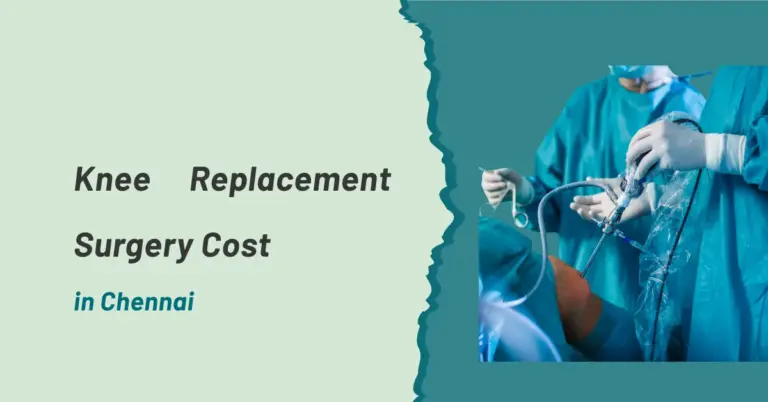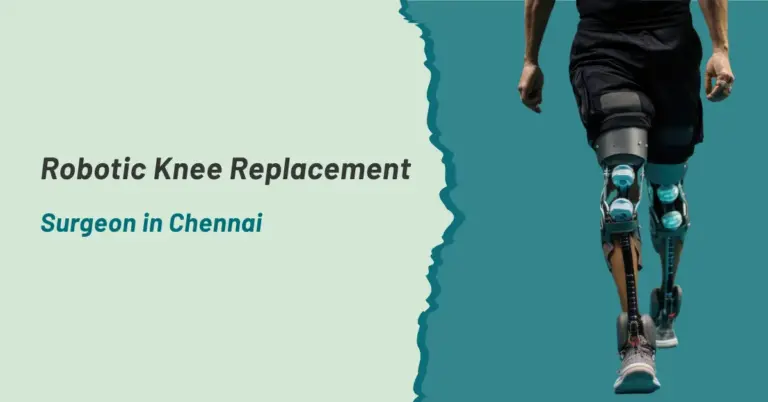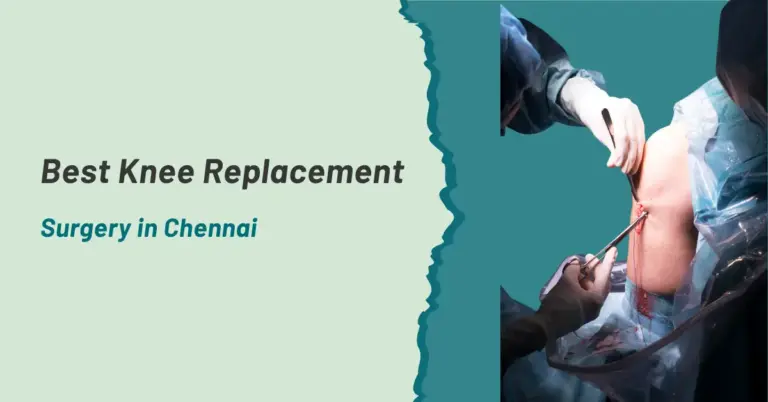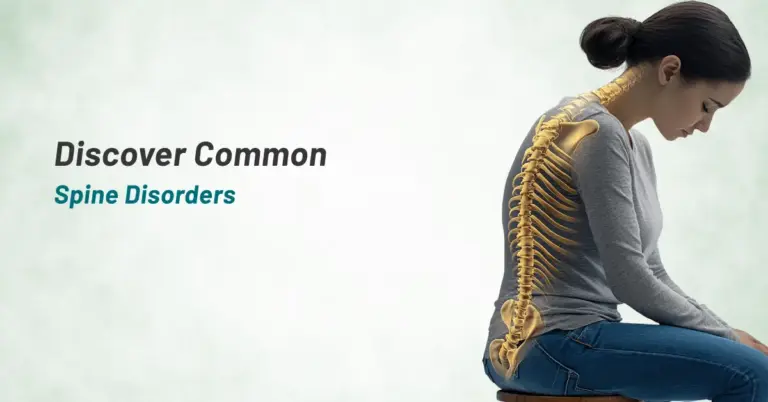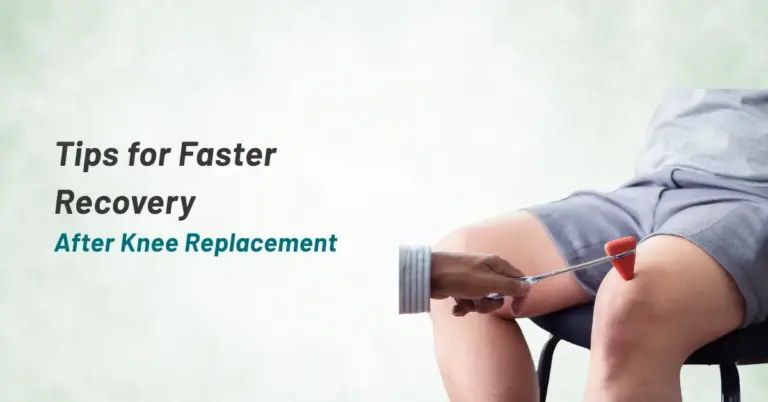Your spine plays a crucial role in your overall well-being, as it supports your body, protects the nervous system, and enables movement. Unfortunately, many of us only pay attention to our spines when back pain becomes noticeable. Ignoring minor spinal issues can lead to significant complications. This blog explores the importance of spine health, tips to maintain a strong back, and when to seek professional help from a spine specialist in Chennai.
Why is Spine Health Important?
The spine is the body’s central support structure, protecting the nervous system—the master control center of vital organs and systems. Poor spine health can lead to serious conditions affecting mobility and daily activities. By adopting a few simple habits, you can maintain spinal strength and prevent long-term problems. Regular check-ups with an ortho spine specialist in Chennai can also help detect early signs of spine-related issues.
Top 3 Spin Specialists in Chennai
Dr. Arumugam S
- Education: M.B.B.S., D.Ortho., M.S (Orthopaedics), M.Ch (Orthopaedics, USA), Fellowship in Joint Replacement (Australia)
- Experience: 24+ years
- Specialization: Joint Replacement, Spine Disorders, Complex Fracture Management, and Sports Injury Treatment
- Notable Achievements: Recognized for his expertise in advanced joint replacement techniques and minimally invasive orthopedic surgeries. Trained internationally, Dr. Arumugam has successfully performed numerous complex knee, hip, and spine surgeries with exceptional patient outcomes.
About the Doctor:
Dr. Arumugam S is one of the best spine specialist in Chennai, known for his extensive experience in treating orthopedic and spinal conditions with precision and care. As a senior consultant orthopedic surgeon at Prashanth Hospitals, he combines advanced surgical skills with compassionate patient care. His expertise in knee and hip replacement surgeries, as well as spine correction and arthroscopic (keyhole) procedures, has helped hundreds of patients regain mobility and lead pain-free lives. His commitment to innovation and excellence makes him a trusted name in orthopedics and spine care in Chennai.
Dr. Karthick Dhayalan
- Education: MBBS (SRM Medical College, Chennai), MS (Orthopedics) (Ramachandra Medical College and Research Institute, Chennai)
- Experience: 8+ years
- Specialization: Simple and Complex Trauma, Knee and Hip Replacement Surgery
- Notable Achievements: Known for his expertise in managing complex fractures and performing advanced joint replacement surgeries with precision. Dr. Karthick has contributed significantly to improving patient recovery through modern orthopedic techniques and evidence-based treatment approaches.
About the Doctor:
Dr. Karthick Dhayalan is a highly skilled spine specialist in Chennai and orthopedic surgeon dedicated to providing comprehensive musculoskeletal care. With strong academic training and hands-on surgical experience, he specializes in knee and hip replacement surgeries as well as trauma management. As a consultant orthopedic surgeon at Prashanth Hospitals, Dr. Karthick combines advanced technology with personalized care, ensuring faster recovery and improved mobility for his patients. His commitment to excellence and patient-focused approach make him a trusted orthopedic and spine specialist in Chennai.
Dr. Tarun Prashanth K.R
- Education: MBBS, MS (Orthopedics), DNB Ortho, FIJR, FARS (USA)
- Experience: 10 years
- Specialization: Robotic-assisted hip and knee replacement, sports injuries, ligament reconstruction, and complex trauma surgery
- Notable Achievements: Trained in robotic joint replacement and regenerative orthopaedic medicine at reputed national and international institutions.
About the Doctor:
Dr. Tarun Prashanth K.R is a leading spine specialist in Chennai and orthopedic consultant at Prashanth Hospitals. With extensive expertise in advanced and minimally invasive orthopedic procedures, he focuses on joint replacement, trauma management, and sports injury care. His patient-centric approach and global training make him one of the trusted names for orthopedic and spine specialist in Chennai, delivering precise and effective surgical outcomes.
Tips to Maintain a Healthy Spine
1. Sleep Right
Getting a good night’s sleep is essential for overall health, but your sleeping position matters:
- Avoid sleeping on your stomach: This position strains your back and neck.
- Sleep on your side: Use proper alignment to reduce back pain.
- Elevate your legs: Place a pillow under your knees when sleeping on your back to relieve spinal pressure.
2. Eat a Spine-Friendly Diet
The foods you consume directly impact your spinal health:
- Include: Meats, vegetables, legumes, whole grains, and fruits, which are rich in antioxidants and vitamins.
- Calcium-Rich Foods: Help prevent spinal issues like osteoarthritis. Examples include dairy products and oatmeal.
- Avoid: Processed and sugary foods that contribute to inflammation and poor bone health.
3. Strengthen Your Core
Core exercises are essential for spinal support and stability:
- Strengthen the muscles around your stomach and lower back with exercises like planks, bridges, and leg raises.
- A stable core reduces strain on your spine and helps prevent injuries.
4. Practice Yoga and Meditation
Yoga, Tai Chi, and meditation can significantly improve chronic back pain and overall spinal health:
- Breathing exercises reduce stress and improve flexibility.
- Stretching routines help alleviate stiffness and maintain proper alignment.
- Consistent practice is key to reaping long-term benefits.
5. Address Small Issues Early
Many people dismiss minor back pain as part of aging, but back pain is not normal at any age. Ignoring small problems can lead to serious complications later. Pay attention to any unusual symptoms and seek medical help if they persist.
6. Maintain Good Posture
Sitting for extended periods can harm your spine. Health experts call this the “sitting epidemic.” Improve your posture with these tips:
- Keep your back straight and avoid slouching.
- Change your position every 30–45 minutes.
- Incorporate standing work for at least 2 hours during an 8-hour day.
- Use an ergonomic office chair with lumbar support to reduce strain.
7. Lift Objects Responsibly
Improper lifting techniques can lead to serious back injuries. Follow these guidelines:
- Bend your knees when picking up objects from the floor.
- Avoid lifting heavy objects without assistance.
- Never twist your body while lifting.
- Be mindful of your limits and prioritize safety.
Recognizing Acute and Chronic Pain
Understanding the difference between acute and chronic pain helps in selecting the right treatment:
- Acute Pain: Lasts 3–6 months and is typically caused by tissue damage, such as muscle tears or ligament strains.
- Chronic Pain: Persists beyond 6 months and may not be linked to visible tissue damage.
If you experience long-term or worsening pain, consult an ortho spine specialist in Chennai for a thorough assessment and treatment plan tailored to your needs.
When to Seek Medical Attention
Warning signs that require immediate attention include:
- Persistent pain that does not improve with self-care.
- Symptoms like numbness, weakness, or tingling in the legs.
- Severe back pain after an injury or accident.
At Prashanth Bone, Spine, and Joint Replacement Center, our best spine specialist in Chennai offers advanced diagnostic and surgical solutions for all types of spine conditions. We provide expert care to restore mobility and enhance your quality of life.
Prioritize Your Spine Health
Maintaining a healthy spine is essential for overall well-being. By practicing good posture, eating a balanced diet, exercising regularly, and addressing small issues early, you can keep your spine strong and pain-free. If you experience consistent back pain or discomfort, don’t delay seeking help. Book an appointment with an experienced spine specialist in Chennai at Prashanth Hospitals for comprehensive spine care and long-lasting relief.


